Remembrance is the act of remembering or honouring the memory of a person, event or experience from the past. Remembrance does not glorify war but respectfully acknowledges the service and sacrifices made by the Armed Forces community to enable a peaceful future. Through Remembrance we also acknowledge the emergency services and pay tribute to their special contribution as well as innocent civilians impacted by conflict and terrorism.
Remembrance unites people of all faiths, cultures and backgrounds. The red poppy is the recognised symbol of Remembrance and hope for a peaceful future. In all acts of Remembrance we honour the memory of the fallen.
Remembrance Sunday is marked every year. It is a national opportunity to remember the service and sacrifice of all those that have defended our freedoms and protected our way of life. It normally falls on the second Sunday of November. In the UK there are ceremonies at war memorials, churches and monuments, the biggest is held at the Cenotaph in London.
Remembrance Day or Armistice Day is the 11th November. It marks the day the First World War ended. The Armistice, an agreement to end the fighting of the First World War as a prelude to peace negotiations, began at 11am on 11 November 1918. We mark Armistice Day around the United Kingdom with a Two Minute Silence at 11am on the 11th day of the 11th month.
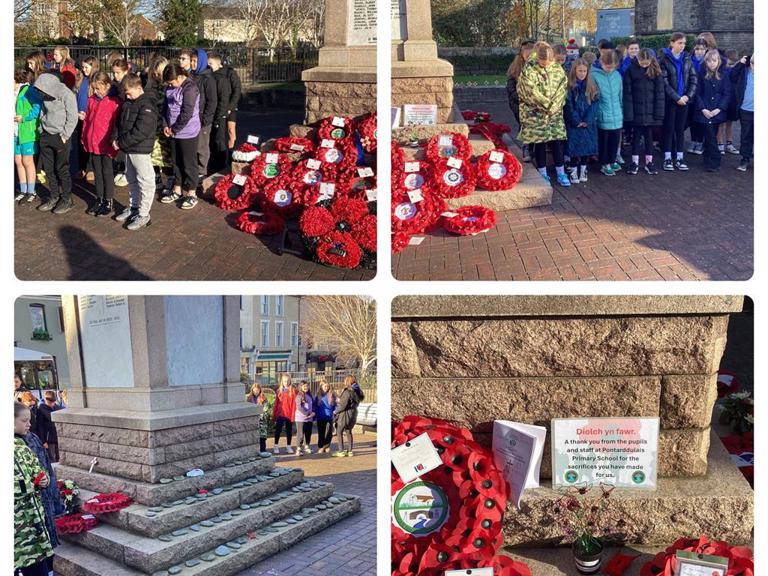
The red poppy is a symbol of both Remembrance and hope for a peaceful future. Poppies are worn to show support for the Armed Forces, veterans and their families. But why the poppy? During World War One much of the fighting took place on farms, fields and land in Europe, this land was devastated by the war and little or nothing could grow, except poppies which flourished in their thousands. The poppy was adopted as the symbol of Remembrance.
The #PoppyAppeal is the Royal British Legion's biggest fundraising campaign held every year in November, during the period of Remembrance.
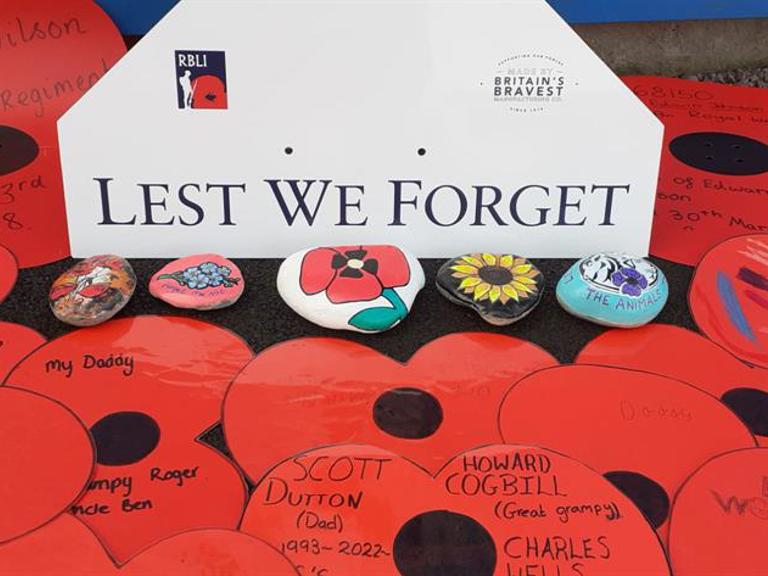
At the going down of the sun and in the morning, we will remember them.
Lest we forget.
In Flanders fields the poppies blow, between the crosses, row on row.
D-Day is commemorated yearly to honour and remember the Allied invasion of Normandy on 6th June 1944 during World War Two.
D-Day marked the beginning of the liberation of France and Western Europe from Nazi occupation. The landings were the largest seaborne invasion in history fronted by an airborne assault.
By the end of D-Day there had been 10,000 allied casualties, thousands of Allied troops risked and lost their lives during the operation.
Annual events commemorate D-Day. The operation was a massive collaborative effort among Allied nations. Commemorations often emphasise themes of unity, peace and cooperation.
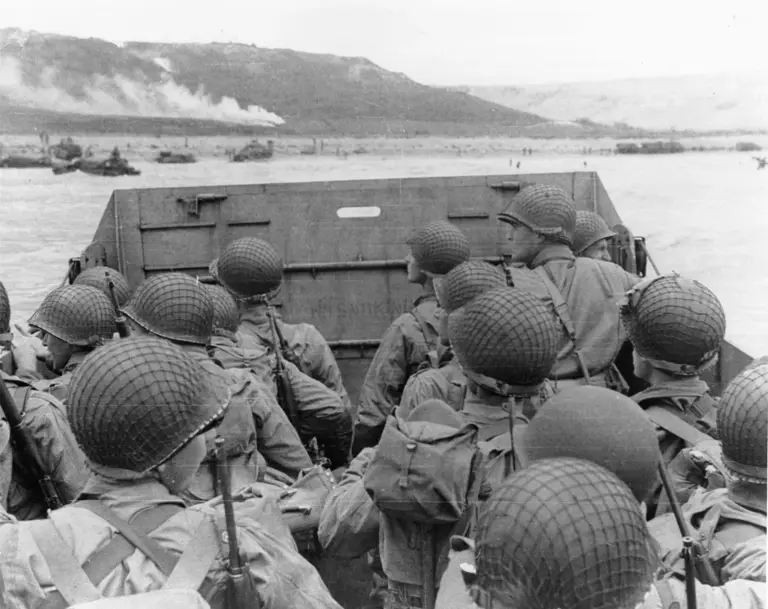
VE Day (Victory in Europe Day) is commemorated to mark the formal end of World War Two in Europe. It is observed on 8th May, the day in 1945 when the Allied forces accepted the unconditional surrender of Nazi Germany, bringing an end to nearly six years of conflict in Europe.
The day is remembered as a moment of relief and celebration, but also reflection. It honours the courage and sacrifice of those who fought and died, acknowledges the suffering endured by civilians, and recognises the importance of peace and unity after a time of immense hardship and loss.
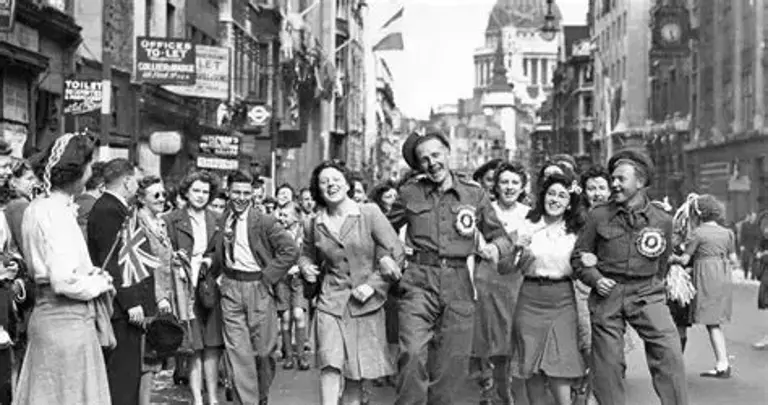
VJ Day (Victory over Japan Day) is commemorated to mark the end of World War Two in the Pacific. It recognises the day when Japan surrendered to the Allied forces, effectively bringing the entire war to a close. This surrender was announced on August 15th, 1945, and formally signed on September 2nd, 1945.
VJ Day allows us to reflect on the immense cost of the war, particularly in the Asia-Pacific region. Over 90,000 British troops were casualties in the war against Japan, 30,000 died and 37,500 were held as prisoners of war. It honours those who served and those who lost their lives, and serves as a reminder of the importance of peace and reconciliation.
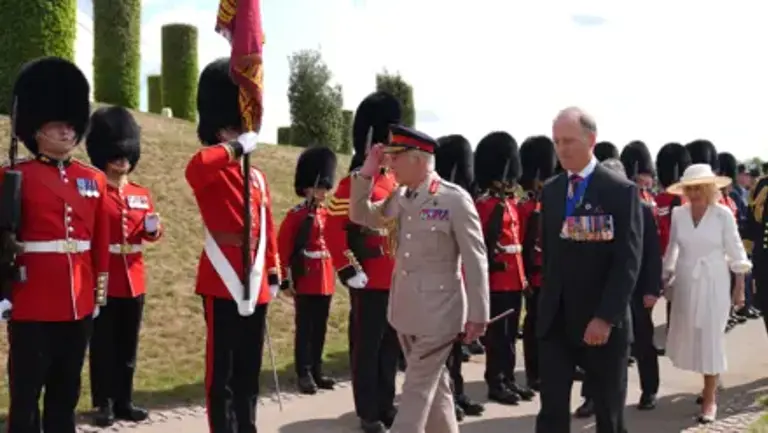
ANZAC Day is a national day of remembrance observed on 25th April each year in Australia, New Zealand and Tonga. It honours and commemorates the members of the Australian and New Zealand Army Corps (ANZAC) who served and died in wars, conflicts, and peacekeeping operations.
The date marks the anniversary of the ANZAC troops landing at Gallipoli in 1915 during World War One, a campaign that had a profound impact on both nations. Ceremonies include dawn services and parades and provide communities a moment to reflect on the cost of war and express gratitude.
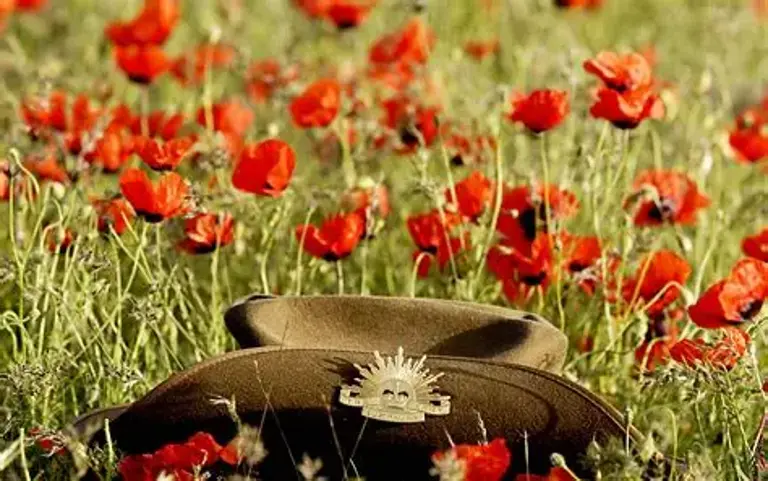

"Being a military child is hard, but it also gets you a lot of new experiences that I wouldn't have experienced otherwise".
Esme-Jane

"For military children they [Mount Street Junior School] do a club called Little Troopers, they've done a Remembrance service, purple up day. We celebrate Holi and Dawali".
Arushi

"My Mum is my parent that is in the Armed Forces. She is a reservist. So when I was younger it was a lot worse, she travelled around a lot. I've lived in the same house my whole life, but she has moved around me. I was in a constant cycle of saying goodbye".
Emma

"My Dad, he's in the Army and he works in the Engineers and he goes away on week days and comes back on weekends"
Emily

"Dad often goes away. It is a bit worrying not knowing where your Dad is going. It does worry me and my sister. Yeah, you just never know when he's coming home".
Joe

"In June or July, my Dad is going away quite far. He's in the Army, he's a chef. Having your Dad gone is so sad."
Josie

"I've lived in many places. So, I was born in Cyprus, after that I've been to Germany, then I went to this place called Stafford. Then another place which is Wales."
Dominic

"I've moved seven times in fourteen years."
Lilia

"Now we've got a forever home. I never have to worry about leaving or how long until I am leaving. I feel like I belong here a lot more, that's always great."
Oliver

"As soon as we get used to a house, you get moved - I’ve been to four schools and moved six times."
Aiden

"I lived in Nepal, then we went to Brunei, then Malaysia."
Ashim

"In my eyes, you have hundreds of friends in different places."
Chloe

"I’m used to moving now and mixing with the children... I’ve done it so many times, it’s just a normal thing now."
Chloe

"It's ok talking over skype and that, but sometimes you just want a hug when Dad is away."
Georgia

"He signed off last week, so he will be done by the end of this year. He’s done 24 years. I find that better because he will be around a lot. He likes watching us playing rugby, so he will get to see us more."
Lewis

"I’ve enjoyed going around to lots of places around the world, it's adventurous and exciting."
Harry

"In my eyes, you have hundreds of friends in different places."
Ieuan
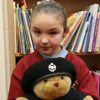
"My mum got a chalk board and it says how many sleeps on it with chalk, every minute it’s getting closer for him coming home."
Mia

"I don’t want him to get promoted... I want him to get promoted but I don’t want to leave."
Oliver

"I might be going to boarding school so that I don’t change schools every few years."
Ryan

"I've been to seven different schools; I’ve not stayed put in one school long enough."
Shana

"He has been away for six months and he is back for two weeks, then he goes away again."
Sianed

"My parents were in the Army. My mum is a like a nurse and my dad went to the war in Afghanistan. I actually didn’t really know what he was doing so I was like, ‘Cool Dad, go there,’ but then I found out and thought, 'Thank God he came back alive.'"
Sanjog

"I’m going to a new place entirely. They don’t know anything about me and that’s a big restart and that’s really good for me."
Piaras

"I moved to Wales because my dad was posted in the Army. I thought I would get bullied and I was shy when you meet new people, but I made some friends."
Dan
Designed & built by eInfinity Limited. Hosting & IT management at eInfinity Tech.